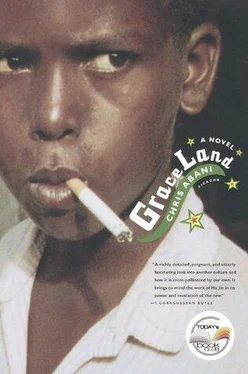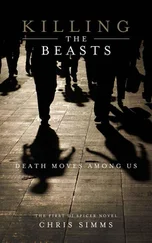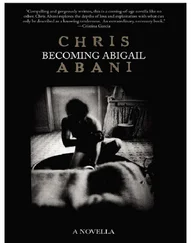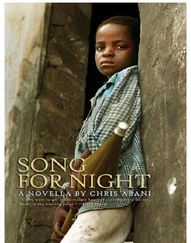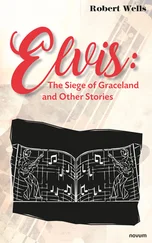(Igbo: Odudu Ngwere)
This is a weed common to abandoned farmlands, with a varied appearance and many branches, and can be a woody shrub or a climber, morphing shape, some healers say, depending on its mood. Its leaves are thin, smooth and ovoid in shape, covered sparely with coarse hair. Small green or pink flowers are borne on common stalks that droop when full These stalks look and feel like the tails of small lizards, which is what their Igbo name means.
The root, macerated in water, can be applied to relieve scorpion stings. It can also be used to help stunted or crippled limbs grow back straight because it contains the regenerative power of lizard tails. Some witches claim the flowers can help you forget the sting of a broken heart when dried and drunk like tea. The dosage must be carefully monitored, however, as too much can prove harmful.
We do not define kola, or life. It defines us.
The kola nut is used in divination by dibias to discern the path of the petitioner. The dibia always asks the petitioner to bring an unbroken pod of kola nuts. The dibia then mutters an incantation and smashes the pod against the floor or a facing wall. The kola nut that lands at the dibia’s feet is the one used for the divination.
Lagos, 1983
Elvis was dressed for work in an old T-shirt and pants. He stood by his desk, checking through his backpack to make sure he had everything he wanted. He took out Rilke’s Letters to a Young Poet, replacing it with the paperback of the Koran he’d bought off a street vendor. He wasn’t a Muslim, but with the constant violence between Christians and Muslims, he wanted to see for himself if the Koran called for the death of infidels. He walked over to his bed and pulled his mother’s journal from under his pillow. He had taken to sleeping with it there after Jagua Rigogo had suggested that it was the perfect way to contact her spirit in his dreams. It hadn’t worked so far, but it brought him comfort to have it within reach. He often fell asleep rubbing his left fingertips against the worn leather.
There was a low knock on his door.
“Come in,” he called out.
Comfort’s son Tunji stood in the doorway. He was holding a red shirt.
“Brother Elvis,” he began, employing the moniker of respect. “I iron your shirt for work.”
Elvis opened his mouth to say that he hadn’t asked for an ironed shirt and that it was impractical to wear a freshly ironed shirt to a job as a laborer on a building site. But Tunji seemed so sincere he just mumbled his thanks and took the shirt. As Tunji turned to leave, Elvis stopped him. Reaching into his pocket, he pulled out a one-naira note and handed it to him. Tunji accepted it gratefully.
On his way to work, Elvis stopped at Madam Caro’s to get some breakfast. Seeing his already drunk father seated at a table pontificating, he moved on. Sunday’s public drunkenness was hard for Elvis to watch. Although Sunday had always turned to alcohol when life became hard, back in their hometown there had been some dignity to his drinking. Perhaps it was because for the most part it had been conducted in the privacy of their house.
As he approached another buka, Elvis saw a man standing outside, begging the owner for food. The owner’s heated response was attracting a small crowd. The man grabbed hold of the plate of food the owner was about to serve and desperately tried to wrench it from her, but she held on tightly. As they struggled for it, the plate gave way and fell to the floor, spilling food everywhere. The man pounced on it, triumphantly scraping rice and dirt into his mouth.
Elvis smiled, mentally celebrating the man’s victory, small as it was. He entered the buka and sat down at one of the tables. Watching the man shoveling rice and dirt into his mouth tugged at him, and he counted the money in his pocket, doing some quick arithmetic. Satisfied that he could spare some, he called the man inside and ordered a steaming bowl of soup and fufu for him.
The man bolted the food, eating so fast his hand was a blur as he shoveled balls of fufu into his mouth. Apparently unaffected by the heat of the food, his prominent Adam’s apple bobbed up and down like a piston. Finishing, the man drank deeply from a jug of water on the table, belched and let out a long-drawn-out sigh. He sat back and smiled at Elvis.
“If you need something, any time, just ask for me, Okon,” he announced.
Elvis nodded distractedly. It seemed like every mendicant in Lagos was able to help him, first the King of the Beggars and now this man.
Okon grabbed Elvis by the hand.
“I dey serious my friend, nobody knows tomorrow. Remember — Okon.”
Elvis looked from the intense eyes to the grip on his arm.
“Sure, Okon.”
“Dat’s me.”
As he left the buka and walked to the bus stop, Elvis realized that nothing prepared you for Maroko. Half of the town was built of a confused mix of clapboard, wood, cement and zinc sheets, raised above a swamp by means of stilts and wooden walkways. The other half, built on solid ground reclaimed from the sea, seemed to be clawing its way out of the primordial swamp, attempting to become something else.
As he looked, a child, a little boy, sank into the black filth under one the houses, rooting like a pig. Elvis guessed it was some form of play. To his left, a man squatted on a plank walkway outside his house, defecating into the swamp below, where a dog lapped up the feces before they hit the ground. Elvis looked away in disgust and saw another young boy sitting on an outcrop of planking, dangling a rod in the water.
Looking up, Elvis saw a white bungalow. Its walls were pristine, as though a supernatural power kept the mud off it. The small patch of earth in front of it held a profusion of red hibiscus, pink crocuses, mauve bachelor’s buttons and sunflowers. The sight cheered him greatly.
Elvis stayed late at work, and it was dark when he got home. He sank gratefully onto the shrieking springs of his bed.
Without knocking, Comfort stormed into his room. He found it hard to think of her as his stepmother, not only because she was not really married to his father, but also because her attitude wasn’t maternal. He had often wrestled with not knowing exactly what to call her, and how to think of her. Sometimes she and his father fought so much it seemed inevitable that they would separate. In fact his father had thrown her things out into the street a few times, demanding loudly that she leave, as she was no better than a harlot and a Jezebel. At other times they seemed very much in love, and during those times, public displays of affection, embarassing for Elvis and his stepsiblings, were common between Sunday and Comfort. She and Sunday lived in a solid impermanence that was confusing for him.
She had been a neighbor in a nearby tenement when Elvis and Sunday arrived in Lagos, and although his father was fleeing bankruptcy and a loss at the polls, Comfort somehow thought he had prospects; he was, after all, educated and had been a Board of Education superintendent. She began to woo him, and at the time, Elvis. Back then she allowed Elvis to call her Aunt Comfort instead of ma’am, and she cooked elaborate dinners for him and his father. Then, a few short months after this romance started, she simply moved in with them, bringing her three children, two boys and the youngest, a girl. Elvis didn’t understand why, as she had the bigger place, while he and his father had a small two-bedroom apartment. He figured it would perhaps have been a blow to his father’s ego to have to move into a woman’s place. It seemed to Elvis that she just appeared in their home. He went to school and when he got home, she and her children were there. No explanation was ever offered him, and no one consulted him. But then, why would they? He was only a child.
Читать дальше
